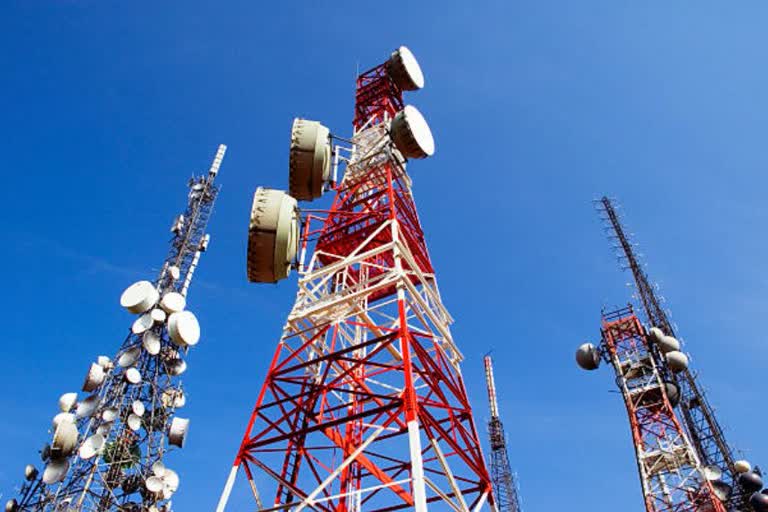Hyderabad: There are lot of speculations that Vodafone India will opt for bankruptcy and eventually, leave the country on a sour note if it is compelled to pay AGR dues to the Ministry of Telecom.
Vodafone’s exit will not only create a duopoly in the telecom sector with Bharati Airtel and Reliance Jio in the fray but also brings problems to millions of its subscribers and hamper country’s progress towards Digital India.
Against this backdrop, let us trace when, where and how the issue of AGR unfolded in nearly two decades.
Background
The telecom sector was liberalized under the National Telecom Policy, 1994 after which licenses were issued to companies in return for a fixed license fee.
To provide relief from the steep fixed license fee, the Department of Telecommunications (DoT) in 1999 gave an option to the licensees to migrate to the revenue sharing fee model.
Under this, mobile telephone operators were required to share a percentage of their Adjusted Gross Revenue (AGR) with the government as annual license fee (LF) and spectrum usage charges (SUC).
Read more: Indo-US Trade Deal: Steel ministry to hold meeting tomorrow to discuss tariff issue
Timeline of AGR Dues Issue
2003: Telecom operators filed litigation challenging DoT’s definition of AGR. The DoT argued that AGR includes all revenues (before discounts) from both telecom and non-telecom services.
The companies claimed that AGR should comprise just the revenue accrued from core services and not - dividend, interest income or profit on the sale of any investment or fixed assets.
2005: Cellular Operators Association of India (COAI) challenged the government’s definition for AGR calculation.
2015: The TDSAT (Telecom Disputes Settlement and Appellate Tribunal) stayed the case in favour of telecom companies and held that AGR includes all receipts except capital receipts and revenue from non-core sources such as rent, profit on the sale of fixed assets, dividend, interest and miscellaneous income.
October 24, 2019: Setting aside TDSAT’s order, the Supreme Court upheld the definition of AGR as stipulated by the DoT.
October 29, 2019: The government constituted a Committee of Secretaries to work out a financial bailout package that may include lowering of spectrum charges as well as ending the era of free mobile phone calls and dirt cheap data.
November 13, 2019: Reports suggest that the DoT issued notices to telecom operators to pay their revenue share dues within three months as directed by the Supreme Court, according to an industry source.
December 1, 2019: Telecom operators Bharti Airtel and Vodafone Idea announced new plans under which call and data charges will be dearer for its pre-paid customers by up to 50 per cent from December 3.
December 4, 2019: Reliance Jio announced to raise mobile call and data charges by up to 39 per cent from December 6 through its all-in-one plans. Industry experts viewed tariff hikes as a move to compensate AGR dues payment.
January 16, 2020: Supreme Court orders telecom companies to pay Rs 92,000 crore to the government. A 3-judge Supreme Court bench rejected the appeal by telecom companies to review plea on AGR matter.
After this judgment, debt-ridden telecom firms started exploring further options, including the filing of a curative petition.
January 21, 2020: Bharti Airtel and Vodafone Idea have moved the Supreme Court in a bid to delay payments.
January 23, 2020: Reliance Jio pays Rs 195 crore to the telecom department to clear all AGR accounted till January 31, 2020.
On the other hand, Bharti Airtel and Vodafone Idea communicated to the telecom department that they will not pay AGR dues of Rs 88,624 crore, the deadline for which ends on January 23 and will wait for the outcome of modification petition listed for hearing before the Supreme Court.
January 23, 2020: DoT decided not to take coercive action against telecom operators if they fail to clear AGR dues as per the Supreme Court order until further orders.
February 14, 2020: The Supreme Court came down heavily on both telecom companies and the telecom department (DoT) over non-payment of adjusted gross revenue (AGR) dues of Rs 1.47 lakh crore.
A three-judge bench headed by Justice Arun Mishra issued show-cause notices to the managing directors and directors of the errant companies asking why contempt proceedings should not be initiated against them.
It also drew contempt proceedings against a telecom department official who had ‘passed an order’ stating no coercive action should be taken against the telcos for not sticking to the Supreme Court’s stipulated January 23 payment deadline.
February 17, 2020: Bharti Airtel paid Rs 10,000 crore to the telecom department and will make the balance paid upon completion of the same, before the next date of hearing in the Supreme Court.
Vodafone Idea and Tata Group made part payment of about Rs 2,500 crore and over Rs 2,197 crore respectively.
The next date of hearing is scheduled for March 17, 2020.



